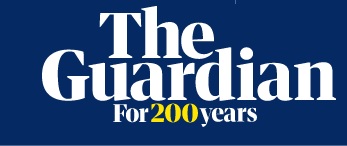Farmers are in revolt and Europe’s climate policies are crumbling. Welcome to the age of ‘greenlash’
Brussels is ditching green measures as EU leaders panic over rural protests, upcoming elections and the threat of the far right
Ursula von der Leyen surrendered to angry farmers last week faster than you could shake a pitchfork or dump a tractor-load of manure outside the European parliament. The European Commission president, expected to announce her candidacy for a second term heading the EU executive next week, told lawmakers that the commission was withdrawing a bill to halve the use of chemical pesticides by 2030 and would hold more consultations instead.
The proposed measure was a key plank in the commission’s European Green Deal and its Farm to Fork strategy, intended to make the EU carbon-neutral by 2050, make agriculture more environmentally friendly and preserve biodiversity.
Von der Leyen’s sudden U-turn on one of her signature policies was not just an attempt to defuse a spreading continent-wide rural revolt over rising fuel costs, burdensome environmental regulations, retailers’ price squeezes and cheap imports. It was also a sign of growing panic among the EU’s mainstream parties over the seemingly inexorable rise of far-right nationalists ahead of the June elections.
Von der Leyen, a former German defence minister, is vying to lead the centre-right European People’s party’s campaign for the elections even though she is not herself seeking a European parliament seat. Her coronation at a party congress on 6-7 March as the EPP’s Spitzenkandidaten (lead candidate) to run the commission from 2024 to 2029 is a formality, since there is no other contender. But she has had to water down her green policies to placate a party so spooked by the “greenlash” against net zero legislation that it is rushing to reposition itself as the voice of gradual adaptation at a pace that citizens can accept and afford.
EU leaders tried to take another contentious issue off the table by agreeing in December on a long-stalled migration pact that includes stricter external border controls, faster procedures for processing asylum seekers and expelling those whose applications are rejected, and sharing the burden of the refugee crisis among EU countries. But populists such as the Hungarian prime minister, Viktor Orbán, continue to rail against being forced to choose between admitting unwanted migrants and paying for other countries to take them in under the new system.
I have seen unpublished opinion polling conducted for the European parliament in January that showed Eurosceptic, sovereigntist or populist parties have taken the lead in eight of the 27 EU members, and are in second place in four more. Moreover, the countries where the far right is polling most strongly include those with the most seats in the legislature – Germany, France, Italy, Poland, Romania and the Netherlands.
This is getting scary, and events such as the farmers’ furore are playing into the hands of populists such as France’s Marine Le Pen, Germany’s Alice Weidel and Dutch far-right leader Geert Wilders, who thrive on grassroots grumbling against the metropolitan elites.
“The (pesticides) proposal has become a symbol of polarisation,” von der Leyen admitted to parliament in Strasbourg. “To move forward, more dialogue and a different approach is needed.” She may have been slamming the stable gate after the horse has bolted.
Farmers have traditionally voted for mainstream conservative and Christian Democratic parties, while the socialists and social democrats had their bastions in industrial urban areas. Remember former president Jacques Chirac, the Gaullist farmers’ friend, jovially slapping the hindquarters of cows in his southwestern Corrèze constituency or at the annual Paris agricultural fair. Nowadays, those voters are more likely to vote for Le Pen’s National Rally, recent polls suggest.
In France, the centre-right Republicans, Chirac’s heirs, are polling at barely 8%, while the National Rally stands above 30% in latest surveys, and anti-Islam ideologue Éric Zemmour’s even further right Reconquest! bags another 6-8%. Le Pen’s list is led by the charismatic 28-year-old Jordan Bardella, already an MEP and party president, while Zemmour’s is topped by Le Pen’s niece, Marion Maréchal, 34, a favourite of US far-right political strategist Steve Bannon.
In the Netherlands, farmer discontent over curbs on nitrogen emissions led to the sudden rise of the Farmer-Citizen Movement, a party that came from nowhere to win the most votes in regional elections last March. Many of those protest voters have since switched to Wilders’ Freedom party, which topped the poll in a general election in November and has gained more ground since then.
Appeasing rural revolt may stop farmers blockading motorways or burning bales of hay outside government offices, but it is unlikely to herd them back towards the mainstream centre-right, given the depth of their discontent.
Indeed, abandoning green policies at the first sign of trouble is only likely to embolden opponents of other aspects of climate protection policy such as replacing fossil fuels with renewable energy, building windfarms and solar parks, limiting polluting vehicles in cities or taxing carbon at the petrol pump or on home energy bills.
Ironically, the party that seems likely to suffer most from the farmers’ fury is the Greens, who are not even part of the coalition of mainstream centre-right, centre-liberal and centre-left parties that dominate the commission and the parliament. Recent polling suggests that the ecologists are set to lose up to one-third of their 72 seats in the 720-member legislature due to the “greenlash”.
On the other hand, the far right still has plenty of potential upside, according to a political consultant working on the campaign. Incidents involving migrants, amplified by xenophobic politicians and social media disinformation factories, may be exploited to inflame public opinion in the run-up to the June poll. Both Russia and Belarus have sought to use refugees at the EU’s eastern borders to create scares, most recently in Finland. The threat of terrorism could also drive voters towards parties promising harsher law-and-order and migration policies.
The meagre consolation for von der Leyen is that the rightwing populists cannot agree to sit in a single group in the European parliament because of personal, ideological or national rivalries.
So Giorgia Meloni’s Brothers of Italy party sits in the rightwing sovereigntist European Conservatives and Reformists group along with Jarosław Kaczyński’s Polish Law and Justice party, the Finns party, and the Sweden Democrats, while Italian deputy prime minister Matteo Salvini’s League is allied in the hard-right Identity and Democracy group with Le Pen’s National Rally, Weidel’s Alternative für Deutschland and Wilders’ Freedom party.
Unless the far right makes more spectacular gains than the surge already predicted, it will remain divided and marginalised in EU governance by the coalition of pro-European mainstream parties. But as von der Leyen’s U-turn on pesticides shows, it may already be winning some of the policy arguments in Europe.
Cover photo: A farmers’ protest in Brussels, Belgium, 1 February 2024. Photograph: Bloomberg/Getty Images




